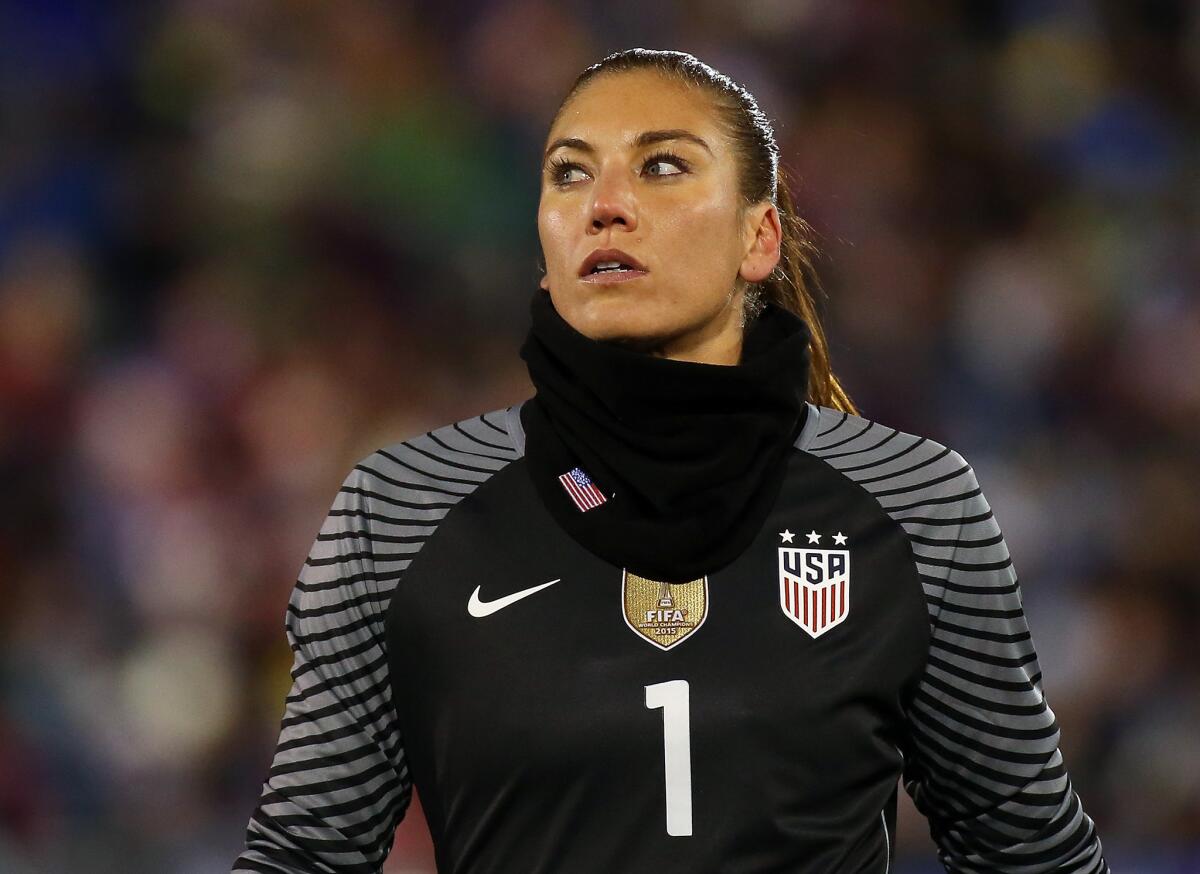Hope Solo, others express concerns over Zika virus at Summer Olympics in Rio de Janeiro

U.S. goalie Hope Solo plays in an international friendly match in East Hartford, Conn., on April 6.
- Share via
The Zika virus continues to cast a shadow over the 2016 Summer Olympics, with U.S. goalkeeper Hope Solo saying she will “begrudgingly” play in Rio de Janeiro and an article in the Harvard Public Health Review suggesting the Games be postponed or moved.
A month or so ago, health officials were predicting the outbreak would subside by August, when temperatures cool in the Southern Hemisphere and the mosquito population decreases.
Now, some experts say the mosquito-borne virus is more serious than originally thought.
“The outbreak that began in the country’s northeast has reached Rio de Janeiro, where it is flourishing,” Amir Attaran wrote in the Harvard review. “Clinical studies are also mounting that Zika infection is associated not just with pediatric microcephaly and brain damage, but also adult conditions such as Guillain-Barré syndrome and acute disseminated encephalomyelitis, which are debilitating and sometimes fatal.”
Attaran believes the World Health Organization and International Olympic Committee are in “deep denial” on the issue.
Speaking to CNBC, Solo said she had been uncertain about whether to play for the American team, but was persuaded by the chance to win a Women’s World Cup and Olympic gold back-to-back.
“I’m going to take every precaution necessary,” she said. “I’m not sure I’m even going to be leaving the hotel room outside of practice.”
Golf officials spoke out on the issue this week, with PGA Tour Commissioner Tim Finchem and LPGA Tour Commissioner Mike Whan predicting a well-attended Games but acknowledging concern among players.
“There’s no doubt that Zika is something that’s captured our attention,” Whan said. “I don’t think anybody who’s between the ages of 18 and 35 on our tour that doesn’t now know how to spell it and how to say it.”
More to Read
Go beyond the scoreboard
Get the latest on L.A.'s teams in the daily Sports Report newsletter.
You may occasionally receive promotional content from the Los Angeles Times.











